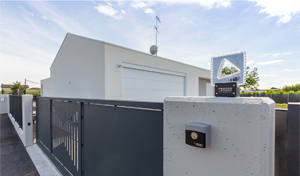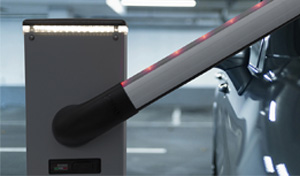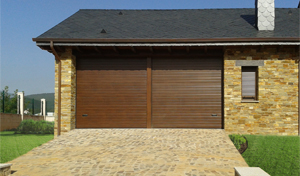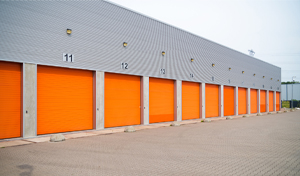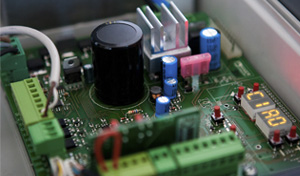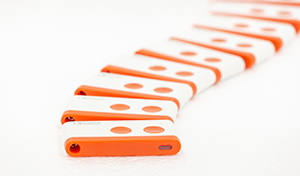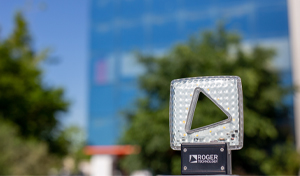What is the Brushless Motor ?
"The digital motor without brushes"
The first electric motor to be built was a direct current motor, which simply spins by feeding it direct current with two wires, the positive and negative, without the aid of any control board. The direct current motor is still made as back then. It has a pair of magnets fixed to the stator,
a series of windings inserted in the rotor whose terminations converge into a copper collector integral with the motor shaft and sliding electrical contacts, necessary to carry the current to the windings, the so-called carbon brushes.
Brushes are the main cause of many problems in direct current motors, such as electrical and electromagnetic disturbances, sparks, wear due to sliding of both the brushes and the collector, poor reliability, excessive heating of the collector and the windings, acoustic noise and electrical noise due to continuous electrical switching on the collector and windings. To solve all these drawbacks, an electric motor without brushes was designed. Given its great success, it was named after its singular and most important feature which is the absence of brushes, hence "Brushless".
The ingenious idea was to insert the permanent magnets into the rotor, which rotates, and to position the electrical windings in the stator, which is stationary. This solution has definitively eliminated the need to use sliding contacts, although for the operation it was necessary to use a very complex control board, which at the time severely limited the spread of this new technology.

Today brushless motors, thanks to continuous technological development, can benefit from increasingly powerful and reliable microprocessors and magnets with a high magnetic field made of rare earths. Brushless motors are dominating the world scenario of electric motors, in fact they can be designed and fitted to enhance a specific application performance. Moreover, thanks to their efficiency which easily exceeds 96%, they have earned the nickname of "green motors"
Roger Technology's Research and Development department has been constantly engaged in shaping and designing its brushless motors and digital controls for over 10 years, using the latest technologies available, paying attention to enhancing the features necessary for its automations.
From this know-how, Roger Technology within its facilities manufacture both the efficient Roger Brushless motors and their digital controls, making their union a perfect match since they were made by us. Roger Brushless motors are all made with concentrated winding to minimize losses on copper, thin magnetic laminations to reduce losses on iron, a combination of optimal grooves and poles to reduce cogging and with a very powerful rare earth magnets coated in nickel to avoid oxidation.

Roger Brushless digital controls are made using the latest generation of microprocessors that can perform over one hundred million operations per second and this allows a real time control over the motor variables and run the program in total safety. Some of the variables constantly monitored are electric current, temperature, speed, voltage, rotor angular position, torque and power consumption.
Another fundamental function of Roger Brushless digital controls is to transform the voltage into direct current in a three-phase sinusoidal-shaped power system, which allows to control the field-oriented motor.
The combination of the characteristics of a Roger Brushless motor combined with its digital control allows to obtain many advantages:
1) the absence of brushes makes the motor very reliable and does not require maintenance.
2) the very low copper resistance of Brushless motors drastically reduces the power loss on the copper, which in normal motors is transformed into heat. This ensure the brushless motors a super-intensive use while remaining at room temperature. From this characteristic we derive the high efficiency of the motor, which often exceeds 96% efficiency, that is, it transforms almost all the electrical energy into mechanics.
3) The powerful magnets, made of rare earths and inserted into the rotor, allow the motor powered by its digital control to obtain a constant torque on the shaft at any speed, starting from a standstill up to its maximum speed.
4) Traditional electric motors are asynchronous motors, so the rotor never faithfully follows the rotation of the magnetic field, on the contrary they adapt to the speed according to the load, significantly decreasing its speed as the load increases. Brushless motors are synchronous motors, hence they faithfully follow the magnetic field of the stator and are bound to it. They maintain their speed in any case as if there were an invisible gear connecting the stator to the rotor. This allows to obtain controlled and precise accelerations and decelerations.
5) As they are synchronous, brushless motors can therefore reverse the direction of rotation even in a few tenths of a second.
6) Brushless motors act as a motor when they transform electrical energy into mechanical energy, but they can act as electrical generators when they brake and absorb mechanical energy transforming it in electrical energy. This feature can be very convenient as it is possible to accumulate excessive energy, store it and use it in the next maneuver.
7) Brushless motors, compared to other motors, with the same power can be made up to a third of their volume, so they can be built much smaller and more compact.

All these factors combined make the brushless motor a great ally of the environment, so much so that this type of motor is now often used by appliance manufacturers for its reliability but above all for its high efficiency and low consumption. This last feature allows manufacturers to be awarded a better energy class "A +++" in product labeling.
Roger Technology has believed in brushless digital motor technology, so much that it is the first company in the world to bring this type of technology to the complete range of access control automations. Thus, offering all the advantages of the brushless motor to its customers. Precision, safety, fluidity of movement and low consumption which also make an added benefit to the environment.
 Imprime ce page |



 English
English Nederland
Nederland Italiano
Italiano Deutsch
Deutsch Belgium
Belgium Português
Português Español
Español Polski
Polski